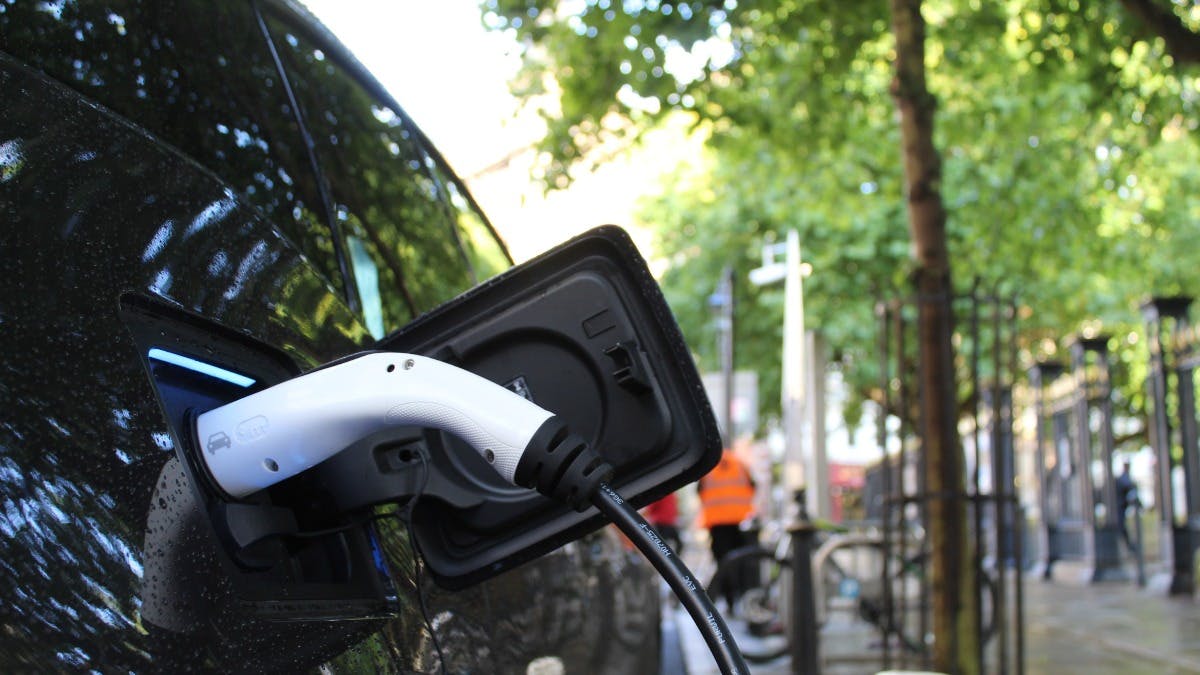Ultimate Engine Car Guide UK: Hybrid VS Mild Hybrid VS Hydrogen Cell VS Plug-In VS Electric

On the lookout for a sustainable car, but you haven’t quite figured out which type of engine would suit your needs? We’ve put together this handy guide about the different engine types to take the headache out of buying a new car!
With the UK government committed to zero emissions by 2030, UK drivers are turning towards sustainable vehicle options and making the switch to cars with electric features. From mild hybrid to full electric, there are distinct advantages to each type that suits different lifestyles and needs.
-
Hybrid
Self-charging electric and petrol hybrid cars are plug-less. Compared to a mild hybrid, the electric battery in this kind of vehicle works independently, in turn saving you fuel along the way. By removing the need to charge the car independently through a plug, these are a great option if you are concerned about range anxiety - especially if you are a new owner that cannot install a charging point at home or don’t live in an area where these facilities exist yet.
Benefits:
-
Emit less CO2
-
Cost efficiency
-
No need to plug in
-
-
Mild Hybrid
In this kind of hybrid vehicle, the petrol engine drives the wheels whilst the electric battery provides support during acceleration, up hills, and while cruising. It helps reduce petrol consumption when pulling away from the line, using stored electricity in place of additional fuel when accelerating.
Benefits:
-
Easy switch to electrification
-
Regenerative braking
-
Improved efficiency, lower emissions
Battery assistance means the engine doesn’t have to work as hard to provide effortless acceleration and uphill driving
-
-
Hydrogen Cell
This type of engine emits nothing but water from the tailpipe. Instead of being powered by electricity stored in a battery, hydrogen fuel cell electric vehicles produce their electricity through a chemical reaction between hydrogen and oxygen in a fuel cell stack.
Benefits:
-
Clean & safe energy
-
Long range
Downsides:
-
Hydrogen refuelling points are far and few between in the UK at present
-
-
Plug-In Hybrid
Plug-In Hybrids (PHEV) cars offer an enhanced level of power output that can be drawn from both a petrol engine and cable-rechargeable battery. It also offers a longer EV range before it switches automatically to petrol drive when running low.
Benefits:
-
Best of both worlds: combo of EV and petrol engine.
-
Lower emissions and increased fuel efficiency
-
Dedicated electric range (but limited) and more power
-
-
100% Electric
Every battery electric vehicle runs on battery power alone, using no fuel and producing zero emissions at the tailpipe when driving. With a variety of ranges, you can find the right car for your needs.
Benefits:
-
Lower running cost: zero road tax, lower insurance cost, save on your servicing
-
Zero impact on the environment
-
Full torque acceleration
-
-
Which engine for which lifestyle
>> If you travel long distances on a regular basis
If you need to cover long distances several times a day, a hybrid car could be the fit for you. The support of electricity combined with petrol will help you cover longer distances for a longer period, while remaining cost efficient.
If you choose a plug-in hybrid car, there are now a lot of options when it comes to recharging on the go. Depending on the model and pin used, a 30-minute stop could be all you need to recharge the battery. With its extra charge from the Plug-In battery, you could cover more ground than a self-charging hybrid which mostly relies on the regenerative braking system.
For those who want that a purely electric range and don’t want to spend much money on gas, you could consider a plug-in hybrid car.>> If you have short commute or drive past charging stations
If a short commute is all you need your car for, or you drive within range of electric charging points, a 100% electric car could be the right fit for you. Although new electric cars offer longer ranges already, you still need to make sure your journey accommodates stops at EV stations to recharge the battery. Running an electric car can save you money in the long-term through reduced servicing, free road tax, lower car insurance (depending on the model), and electricity cost (depending on the provider unit cost).
With the UK government committed to net zero by 2030, it’s pretty safe to bet that EV charging points will be available throughout the country which will remove some of the “range-anxiety” that comes with EV ownership.
-
Common myths and misconceptions
>> An EV battery lifespan is short or unreliable
Depending on the manufacturer you go for, there is warranty to cover the car battery. Most commonly, an 8-year warranty or 100,000 miles warranty will cover the replacement of the battery or if the lifespan falls under 70% of its electric storage capacity.
>> You won’t recoup the cost of a plug-in car
It may have been true a couple of years ago, but with the advancement of technology manufacturers can confidently say that running a plug-in car can save you on fuel in the long-term. With a longer electricity range, a plug-in hybrid can run on electricity for a standard journey such as 25 to 55 miles commute. And all this without using any fuel!
>> A hybrid car will stall if the battery runs down
With the regenerative brake, it is very unlikely your hybrid car will run its battery down. While you break or slow down, the excess of energy is stored in your battery to be used later at accelerating speeds.
>> The battery of an electric car can explode or catch fire easily
Nowadays, electric vehicles are no more likely to explode or catch fire than any other type of vehicle. They have cooling systems in place meant to prevent fire or explosion. You should treat an electric car the same way as any other regular cars.
-
Conclusion
Making the switch to electrification can be daunting at first. You don’t have to plunge into a full electric car if range-anxiety is your main concern, or if your lifestyle does not accommodate the setup. Making your way “up-the-ladder” could be a smart transition, such as starting with mild hybrid, then hybrid to plug-in hybrid. With the UK building more and more facilities for charging stations, the rise in electric car will become easier to access for most UK drivers.
If you need to test drive or talk this through with professionals, at SLM Group we will help guide you to the right engine.


